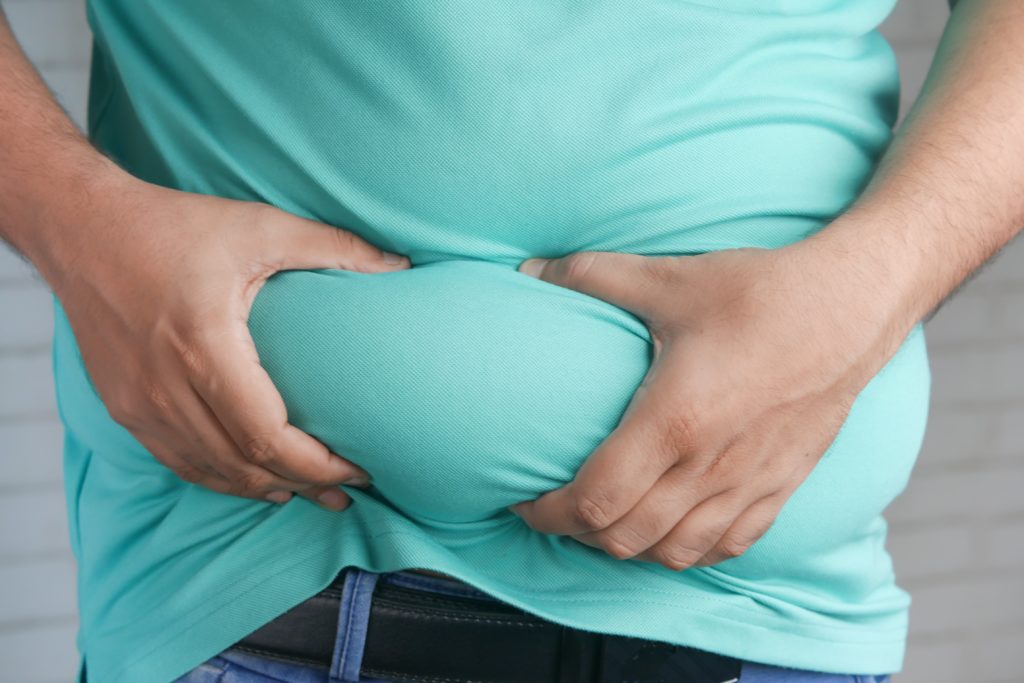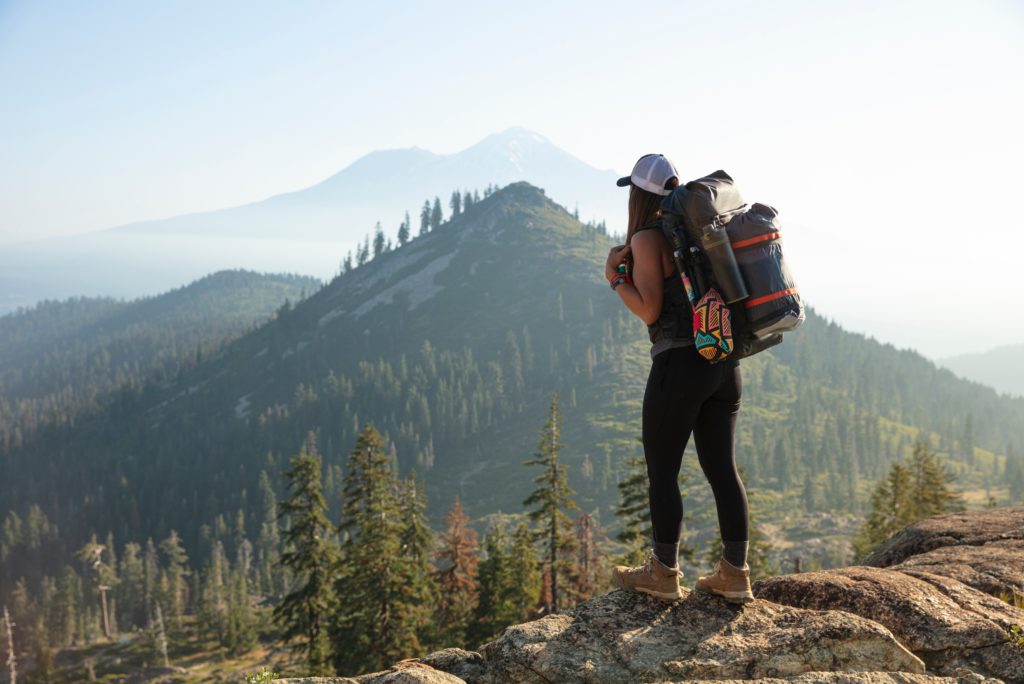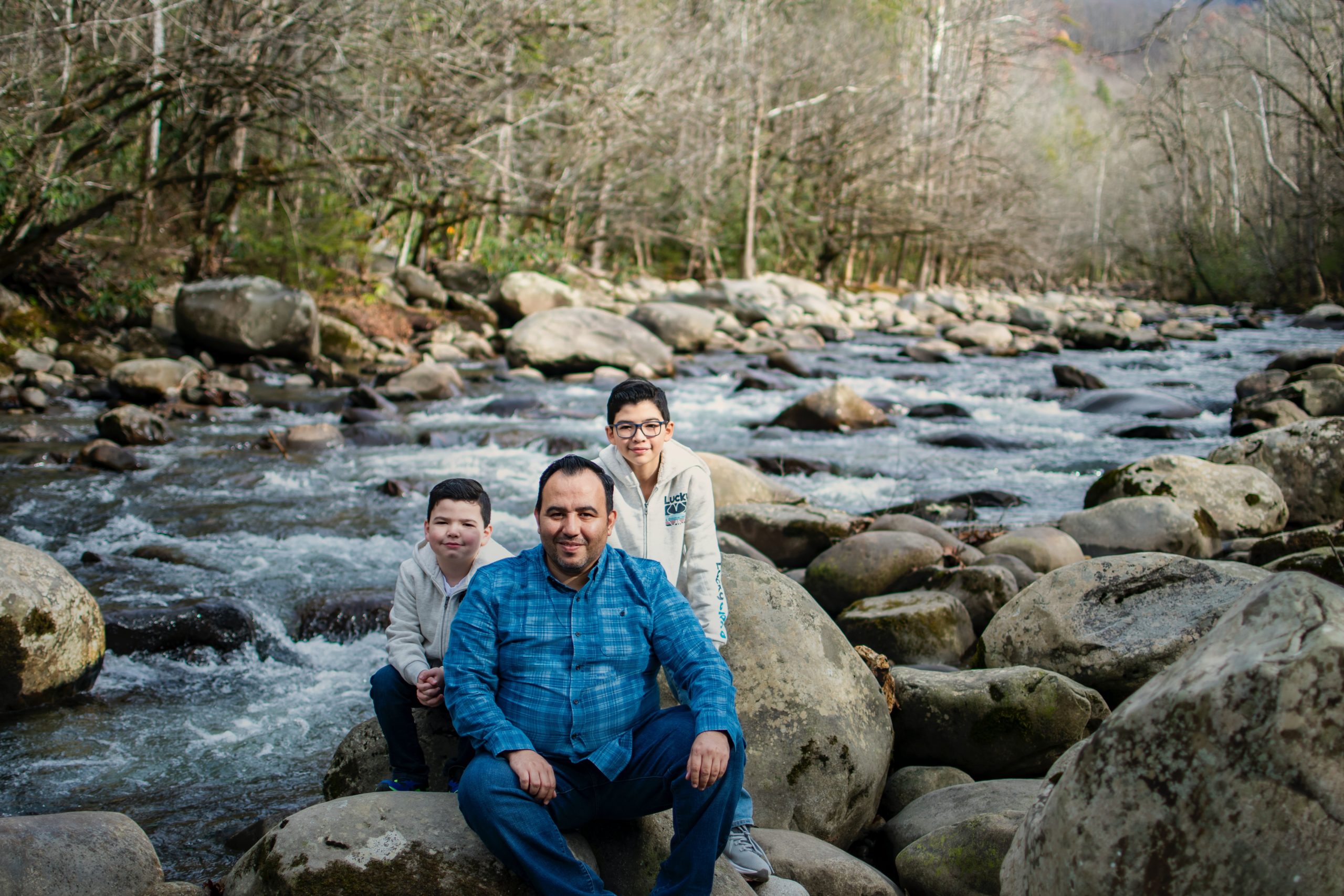Exercise is good for your health and overall appearance and is also very important for your family. Exercise benefits you as an individual, and in turn benefits your family, as it will help you stay healthier and longer for them. Also, your exercise habits may just extend to your spouse and kids, so the whole family can be a super fit family!
However, when it comes to which exercise you should do, there is no one-size-fits-all answer.
Do you want to go to the gym and pump iron? Good idea, but can be a bit risky, especially the more you age, so you might end up just going on a treadmill for an hour which can be pretty boring.
Do sports? Again, same scenario.
This is why we are here to tell you that you can get a killer workout by just leaving your house. Hiking is not only fun, but an amazing workout to get into shape.
Let’s look at hiking and why it might be the right family exercise for you to begin…
Is Hiking A Good Way To Lose Weight?

Before we get into why hiking is a GREAT way to lose weight, let’s talk about how weight loss happens in the first place. Weight loss occurs when you expend more energy than you are taking in. It’s simple math: If you are burning more calories than you are eating or drinking, then you will lose weight. There are no two ways about it, and every single diet or workout fad ultimately revolves around this equation.
So, now that we know that we need to burn calories, where does hiking come in? Well, hiking would be considered a kind of cardio. More accurately, slow and steady cardio. Because you are walking for a long time, your body is moving and expending energy slowly, but it stays in that position for long periods. Compare that to fast-paced cardio like running, and we will give the win to hiking. The faster you hike, the more you will burn.
Let’s look at the average calorie-burning properties of hiking. As a man of roughly 200 pounds (90 KG) you can expect to burn around 500 calories per hour of hiking. You can expect to burn around half the calories as a woman at half the weight.
Now let’s see how much weight you will actually lose.
Let’s say you go hiking for an hour daily or two hours every two days. That’s roughly a calorie deficit of 500 calories a day. Now, a pound (0.45 KG) has 3500 calories. If you burn 500 calories a day or 1000 calories every two days, then you can expect to burn a full pound in a week. While a pound may not actually sound like much, this is fantastic, as it’s not recommended to lose more than a pound or two a week anyway.
Can Hiking Burn Belly Fat?

Let’s begin with a common myth: You need to exercise your stomach (Like doing sit-ups and crunches) to burn belly fat. Wrong!
Unfortunately, burning fat in a specific body area is impossible. How do you burn belly fat, though? By burning the rest of the body fat. Belly fat goes away the more the fat in your body, in general, goes away since our bodies burn fat totally and not in one spot. This is why some people can see the numbers on the scale going down but don’t see any significant belly fat change; they just need more time because the burning will get to the belly eventually.
So, how does hiking come in? Well, we have already established that hiking can have you losing a pound of fat a week. This pound loss will affect your belly fat, even if it takes some time to get to it. The more you hike, the more your entire body will burn fat, and the more your belly will go down, so stop doing these crunches that serve nothing but strengthening your abdominal muscles (that you need to lose the fat over to see in the first place) and grab your backpack!
Is Hiking Enough Exercise?

“Enough” exercise really depends on your goals. There are different kinds of exercises for different purposes, like endurance, muscle-building, cardio, mobility, flexibility….etc. It depends. Do you want to lose weight, have overall better health, a stronger heart, and endurance to walk or hike longer distances for extended periods? Then hiking would absolutely be enough exercise.
A catch here is how often you do it. If you go hiking once a week, just like doing anything just once a week, it’s good and will have benefits, but it’s not ideal for long-term fitness.
To lose weight or achieve a higher fitness level, you will need to go hiking, say, 3 times a week to see significant changes. Still, if you go only once for several hours, you will definitely get stronger and it will help your cardio and heart, but doing more will always be better for weight loss.
Now, if you’re planning on building muscles, here is where hiking may take a backseat. First, hiking is a great way to build lower-body muscles, especially the legs. Because you’re constantly ascending and descending, your quads, hamstrings, and calves are doing all the work. If you want big, strong legs, then hiking will definitely be the leg day to end all leg days.
On the other hand, if you want to build upper body muscles like your chest, shoulder, and arms, then hiking will do you no good. In this case, you can combine hiking with going to the gym for upper body workouts or doing any other upper body-focused sport like climbing. An hour of hiking after 45 minutes of gym time, and you’re set to be the next Schwarzenegger (in the legs).
Although hiking is mainly for the lower body, it has other strong benefits. Firstly, hiking strengthens your core, especially if you are wearing a heavy backpack. Hiking will also improve overall balance and endurance, notably in high elevations. The more you hike, the easier you will find it to walk long distances or go up flights of stairs in the future. It will also help you prevent injuries since your body will be more stable and accustomed to doing hard tasks.
Hiking Is A Family Exercise
Hiking can be fun and great for the whole family. You always want to have your kids exercising from a young age, and people usually do that using sports. However, if your kid isn’t into throwing balls or swimming, then hiking is a perfect way to start their fitness journey. Exercising with others is always very motivating, and there is no better motivator than your family.
Going hiking with your family will also make you walk for longer periods of time over greater distances since you will not get bored walking alone and will have someone to talk to. Your kids and spouse will really appreciate the adventure and you can always challenge yourselves and do more.
Factors Affecting Hiking and Exercise
As we have mentioned, some factors will affect how much you lose weight or how hard your workout is when you hike. Let’s take a look:
- Time and Distance: The more you hike, the more you burn, and the stronger you get. Obviously, if you are burning 500 calories an hour, you burn 1000 every two hours, and 1500 every three hours. Be careful with going too far though, as you don’t want to tire out or walk till your legs get hurt and you can’t do more until later. An hour or two is a good ballpark.
- Your Backpack: The heavier your backpack, the more intense your hiking session will be. Your backpack doesn’t just affect your balance, it will also determine your core strength gain and how many calories you burn. The heavier you are, the more calories you burn, since you add more resistance to the workout. You can add an extra 50-200 calories burned by just the weight of your backpack
- Your Speed: Hiking can be fast-paced or slow-paced. The faster you walk, the more intense the workout, but the shorter it may be if you tire quicker. There are studies that more intense and faster workouts can boost your metabolism even after finishing, but it’s not 100% proven. Still, it’s good to switch things up. One day you can do a slow steady hour hike and one day you can do a fast-paced 30-45 minutes.
- The Elevation: Just like the incline function on a treadmill, the steeper the terrain, the harder the exercise, and the more calories you burn. The uphill-downhill shifts will also strengthen your muscles even more. If you want to burn more calories, choose the steepest, rockiest terrain on which you can get your hands (or more accurately, your feet).
- Age and Fitness Level: This is a big contributor. Generally speaking, younger people will burn more calories and develop muscles faster than older people. However, an older person with a higher fitness level can get the upper hand in terms of health. So, it depends on how much you have exercised before and how often you usually do it.
- Don’t Forget Your Diet: Outside the hike itself, if you want to lose weight or get healthier, you can’t ruin all the work you put in on the hike by eating more, worse food. In terms of weight loss, food can be the only thing that has any difference. You can reduce your calorie intake for a greater deficit, or maintain your calorie intake and count on the hike alone to get you your deficit.
Hiking Is A Mental Exercise

Not only does hiking exercise your body, but it also exercises your brain. First of all, you will have less stress. It’s been proven that exercise has your body release chemicals called endorphins, which not only numb pain, but also give you a pleasurable sensation. As a result, you will have less stress. Also, disconnecting from everyday life and going out into nature will reduce your stress levels.
Hiking is also a brain exercise in that, you need to use your brain. Just like the humans of old, you will encounter challenges along the trail that you will have to solve. You will have to change up your route sometimes, figure out how to go behind a big obstacle, face animals, use markers…etc. All of this will have an impact similar to that of puzzles or chess. Hiking will also improve your general navigation skills and help you navigate your own life.
The time-out will also help you think more clearly about things. If you are having trouble at work, for example, getting away from the stress of it or the house and just having the clarity of the outdoors will help you think more calmly.
Who knows, maybe you will come up with some crazy idea that leaps you forward.
Takeaway
Overall, hiking is a magnificent exercise for you and your family. Depending on your goals, you can achieve ridiculous results after hiking in relatively challenging terrain for an hour or two. As a cardio and lower back workout, you will reap all the benefits of a treadmill or leg workout, but as far as upper-body muscle, that’s not hiking’s forte. Keep in mind your speed, fitness level, backpack weight, terrain difficulty, hike length, and intensity; you will be losing fat and getting a healthier, stronger heart.
Take the whole family for a hike for motivation, bonding, and shared benefit between all of you for your bodies and brains.
